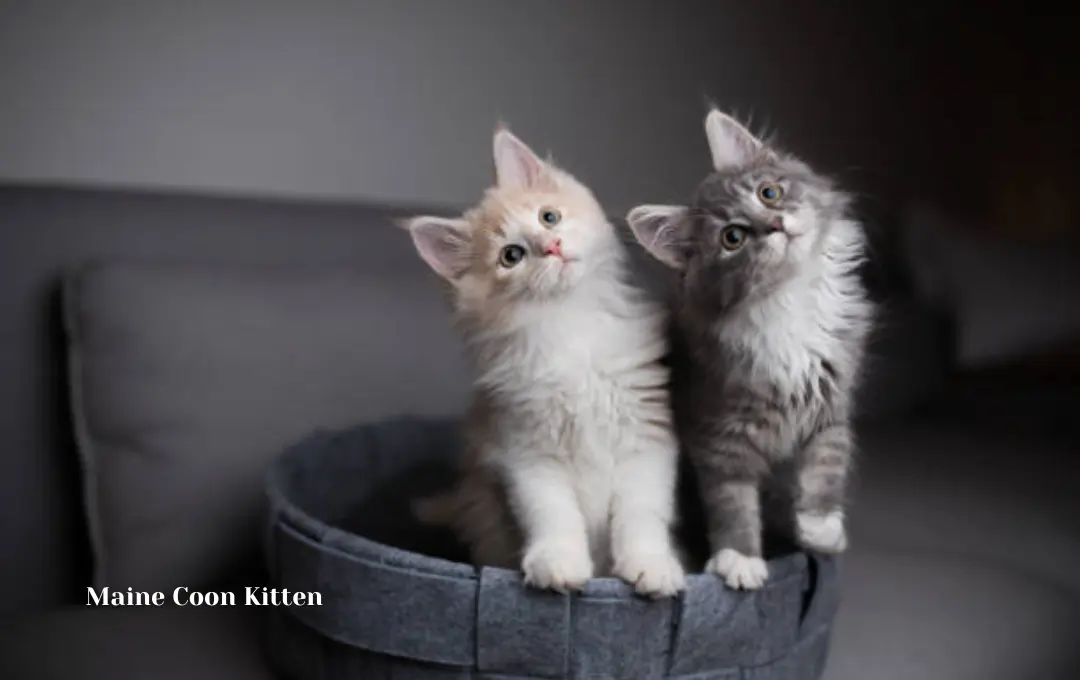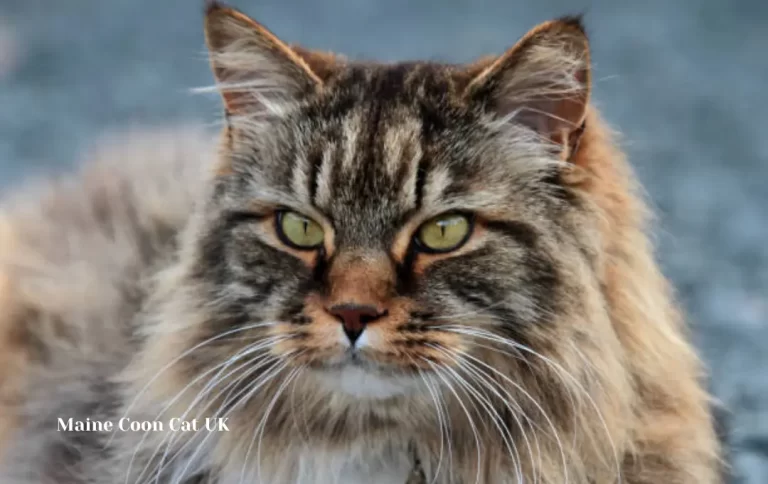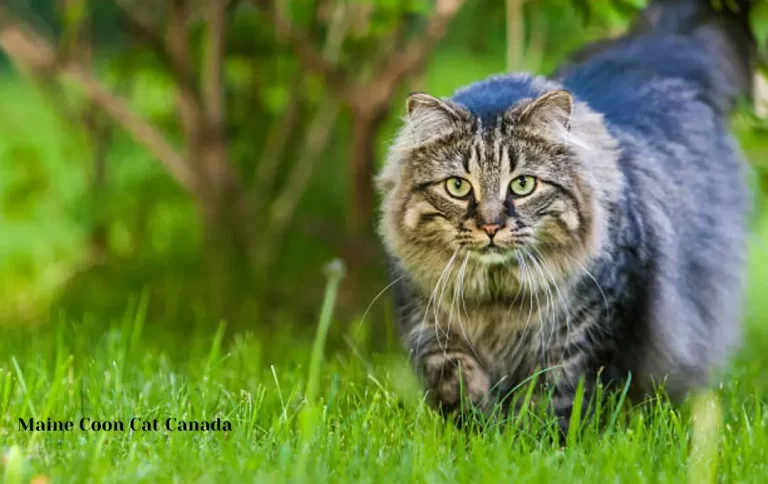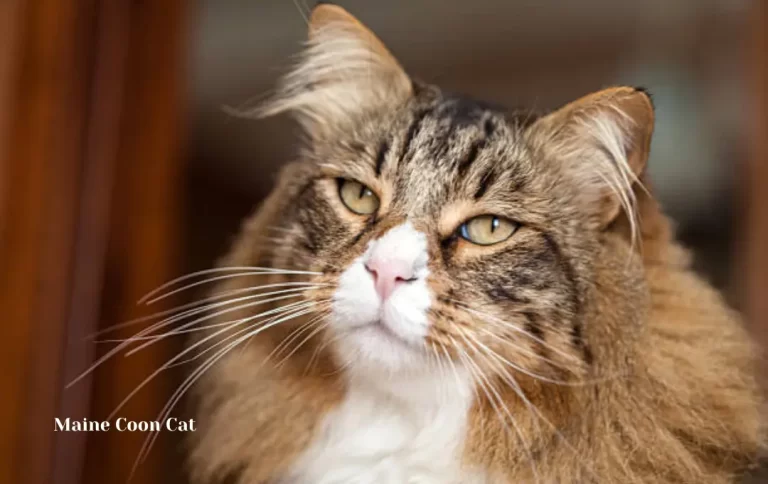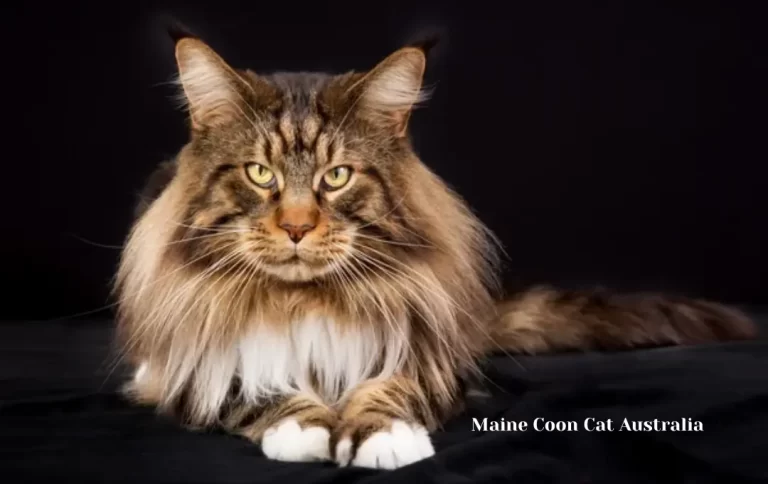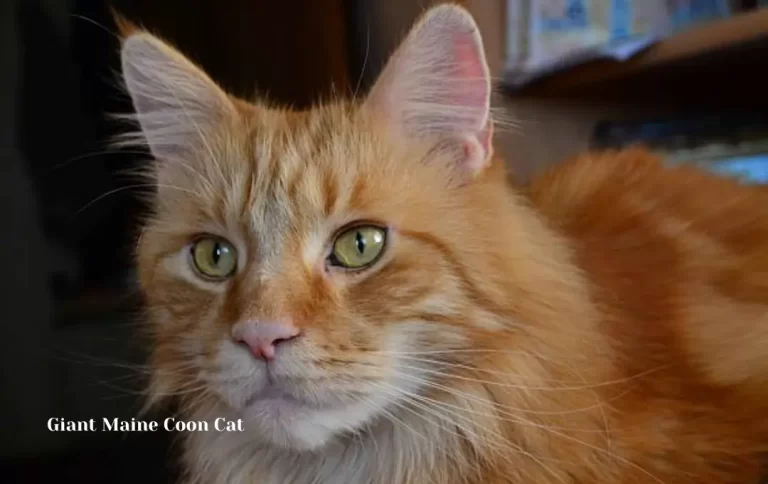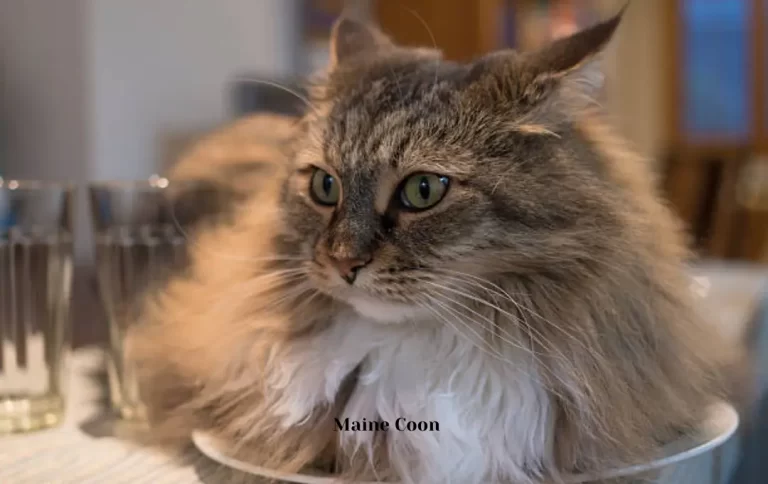Affordable Maine coon cat kitten price | Maine Coon – Price, Personality and Lifespan 2023
Maine Coon cats, known for their majestic appearance and gentle disposition, have long held a special place in the hearts of cat lovers worldwide. Their distinctive physical features, such as tufted ears, bushy tails, and large, expressive eyes, have made them a sought-after breed for those looking to bring a touch of feline royalty into their homes. In this article, we delve into the intriguing world of Maine Coon cat kitten prices.
While many factors influence the cost of acquiring one of these enchanting kittens, it’s not just about dollars and cents; it’s about understanding the intricate web of considerations that breeders and buyers navigate. The price of a Maine Coon kitten goes beyond the monetary aspect, encompassing the kitten’s pedigree, health, age, and other variables that contribute to the unique appeal of this beloved breed.
Maine Coon Breed
The Maine Coon, often referred to as the “gentle giant” of the feline world, is a breed known for its distinct appearance, friendly nature, and fascinating history. Understanding the allure of Maine Coon kittens begins with appreciating the unique qualities of the breed itself.
Historical Origins
The origins of the Maine Coon breed are shrouded in myth and legend. While there are various theories about their ancestry, one popular legend suggests that they are the result of a cross between domestic cats and raccoons due to their tufted ears and bushy tails. However, this is scientifically implausible, and it’s generally accepted that their ancestry lies in long-haired domestic cats brought to North America by seafarers and early settlers in the 19th century. They are named after the state of Maine, where they were first recognized and cherished.
Distinctive Characteristics
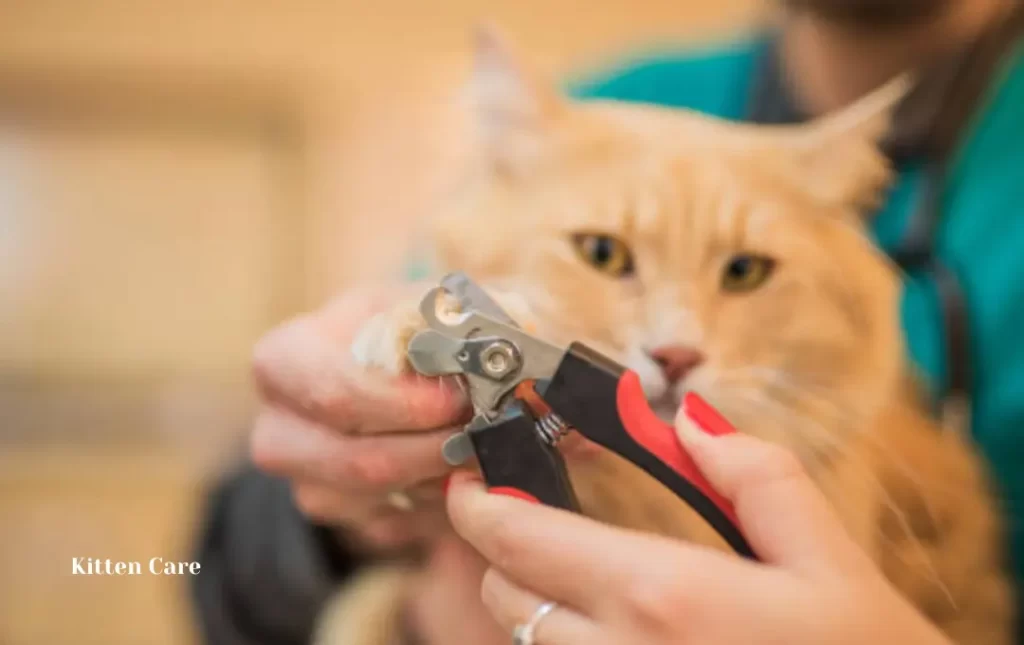
Maine Coons are known for their striking physical attributes, which set them apart from other cat breeds:
Size: Maine Coons are one of the largest domestic cat breeds, with males often weighing between 13 to 18 pounds (5.9 to 8.2 kg) or more, and females typically ranging from 8 to 12 pounds (3.6 to 5.4 kg). Some exceptional individuals can even surpass these averages.
Coat: They boast a semi-long, water-repellent coat designed to protect them from harsh weather conditions. The coat can come in various colors and patterns, adding to their visual appeal.
Ears: One of the breed’s most distinctive features is their large, tufted ears, which give them a lynx-like appearance.
Tail: Their bushy, expressive tails are another hallmark feature. These tails are often described as “bottlebrush” in appearance.
Eyes: Maine Coon cats have large, expressive, and intelligent eyes that come in a variety of shades, which can range from green to gold.
Personality: Beyond their physical characteristics, Maine Coons are known for their affectionate, gentle, and friendly personalities. They are sociable and enjoy interacting with their human companions, often forming strong bonds.
Why Maine Coons Are Sought After
Maine Coon cats’ endearing characteristics make them highly sought after as pets. Their friendly nature makes them an excellent choice for families, as they tend to get along well with children and other animals. Their size and appearance also make them a conversation piece, and many cat enthusiasts are drawn to their majestic looks.
Factors Affecting Maine Coon cat Kitten Prices
The world of Maine Coon cat kitten prices is far from straightforward. It’s a delicate interplay of various factors that determine the cost of bringing one of these enchanting felines into your home. In this section, we’ll delve into the complex web of considerations that breeders and buyers navigate.
Pedigree and Lineage
One of the most significant factors influencing the price of Maine Coon kittens is their pedigree and lineage. A well-documented, prestigious lineage with championship titles and show-quality ancestors can significantly increase the price of a kitten. Breeders invest years of careful breeding, meticulous record-keeping, and participation in cat shows to produce kittens with exceptional lineage.
Championship Titles: Kittens with parents and grandparents that have won championship titles are highly sought after. These titles, awarded for conforming to breed standards, indicate a superior lineage.
Show-Quality Ancestors: Kittens descended from Maine Coons that have excelled in cat shows can command higher prices. These cats often possess desirable traits such as perfect ear tufts, coat texture, and eye color.
Breeder Reputation
The reputation of the breeder plays a significant role in determining Maine Coon kitten prices. Reputable breeders who prioritize the health, well-being, and ethical treatment of their cats tend to charge more for their kittens. These breeders invest in proper nutrition, healthcare, and socialization for the kittens.
Ethical Practices: A reputable breeder will adhere to ethical breeding practices and provide proper documentation for the kitten’s health and lineage.
References and Reviews: Positive references and reviews from previous buyers are often a good sign of a reputable breeder.
Health and Genetics
The health and genetics of a Maine Coon kitten are paramount in determining its price. A well-bred Maine Coon should be free from hereditary diseases and have a clean bill of health. A kitten with documented vaccinations, regular veterinary check-ups, and genetic testing for common breed-specific health issues may be more expensive.
Genetic Testing: Some breeders invest in genetic testing to ensure their kittens are not predisposed to hereditary conditions like hypertrophic cardiomyopathy (a heart condition common in Maine Coons).
Vaccinations and Records: Kittens with up-to-date vaccinations and detailed health records often command higher prices. Buyers can be confident they are bringing home a healthy pet.
Age and Coloration
The age of a Maine Coon kitten can also influence its price. Younger kittens, typically under three months old, may cost more, as they require more care and attention. Additionally, coat coloration and patterns can impact price, with some colors being rarer and more desirable than others.
Age: Very young kittens may be more expensive due to the effort and time required to care for them, including proper nutrition and socialization.
Coloration: Some coat colors, such as rare solid colors or distinctive patterns like tortoiseshell or calico, can increase the price.
Location and Demand
The geographic location of the breeder and the demand for Maine Coon kittens in that area can influence prices. In regions where the breed is less common or in high demand, prices may be higher due to limited availability.
Geographic Location: Maine Coon kitten prices can vary from one region to another. Urban areas or areas with a high demand for the breed often command higher prices.
Local Demand: The local demand for Maine Coon kittens can also affect pricing. A breeder in a region with many interested buyers may charge more for their kittens.
In summary, the cost of a Maine Coon kitten is not solely determined by monetary factors but rather by a complex mix of considerations. Understanding the influence of pedigree, breeder reputation, health, age, coloration, and regional demand is essential when assessing the price of these majestic feline companions. Buyers should approach the acquisition of a Maine Coon kitten with a well-rounded perspective, considering both the financial investment and the unique qualities that each kitten may bring to their lives.
Typical Price Range of Maine Coon Kitten
The price of Maine Coon kittens varies widely based on several factors, as we explored in the previous section. However, having a general idea of the typical price range can help prospective owners understand what to expect when searching for these magnificent feline companions.

Why are Maine Coon kittens so expensive?
Maine Coon cats are a relatively rare breed, which means they are not as widely available as other breeds. As a result, their price tends to be higher due to the limited supply and high demand.
Price Range Overview
Maine Coon kittens are often considered a premium breed, and their prices reflect this status. On average, you can expect to pay between $800 and $2,500 for a Maine Coon kitten. This range provides a good starting point for your budgeting considerations, but it’s important to remember that prices can go both above and below this range, depending on the specific circumstances.
Factors Affecting Price Variation
As discussed earlier, several factors influence where a Maine Coon kitten falls within this price range:
Pedigree and Lineage: Kittens with exceptional pedigrees, championship titles, and a long line of show-quality ancestors can command prices at the upper end of the range.
Breeder Reputation: Reputable breeders who prioritize the health, well-being, and ethical treatment of their cats often charge higher prices for their kittens.
Health and Genetics: Kittens with thorough health records, genetic testing, and up-to-date vaccinations may also cost more.
Age and Coloration: Very young kittens and those with rare or desirable coat colors can be priced higher.
Location and Demand: The region where the breeder is located and the local demand for Maine Coon kittens can affect pricing.
Extra Costs to Consider
When budgeting for a Maine Coon kitten, it’s crucial to keep in mind the extra costs associated with cat ownership. These expenses can add up, so make sure to include them in your financial planning:
Initial Supplies: You’ll need to purchase supplies such as litter boxes, food and water dishes, cat beds, scratching posts, and toys.
Veterinary Care: Regular vet check-ups, vaccinations, and preventive medications are essential for your kitten’s health.
Food: High-quality cat food is necessary for your Maine Coon’s nutrition.
Grooming: Maine Coons have long fur that requires regular grooming, so consider the cost of brushes and grooming tools.
Spaying/Neutering: If your kitten is not already spayed or neutered, this procedure is essential.
Pet Insurance: Consider getting pet insurance to cover unexpected medical expenses.
Training and Socialization: Enrolling in training classes or hiring a professional trainer may be necessary for behavioral issues.
Travel Expenses: If you’re buying from a breeder in a different location, factor in travel expenses for pickup or delivery.
Maine Coon Kitten Breeder Reputation
When it comes to acquiring a Maine Coon kitten, the reputation of the breeder is paramount. A reputable breeder ensures the health, well-being, and ethical treatment of their cats, and they can provide you with a kitten that is not only beautiful but also well-adjusted and healthy. Let’s delve into why breeder reputation is so crucial and how to evaluate it:
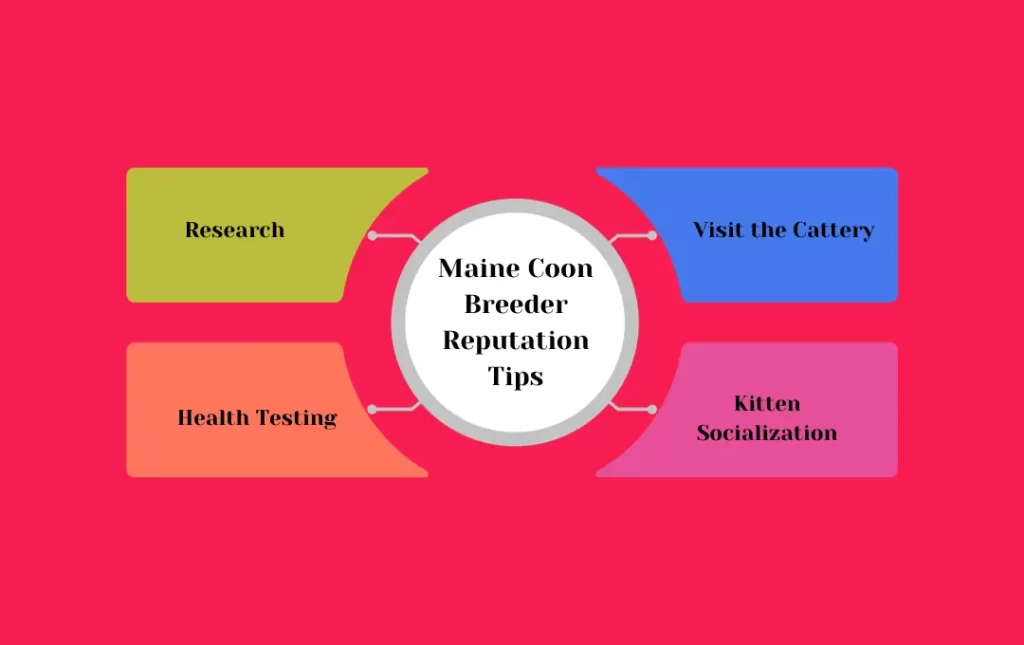
Why Breeder Reputation Matters:
Kitten Health and Well-being: Reputable breeders prioritize the health and well-being of their kittens. They ensure that the kittens receive proper nutrition, healthcare, and socialization. This results in well-adjusted and healthy kittens that are more likely to thrive in their new homes.
Ethical Breeding Practices: Ethical breeders adhere to responsible breeding practices, such as not overbreeding their cats, providing clean and safe living conditions, and avoiding inbreeding. These practices help prevent hereditary health issues in the kittens.
Documentation and Records: A reputable breeder maintains thorough records of their kittens, including health records, vaccinations, and lineage. They provide buyers with clear documentation and information.
No Harmful Practices: Reputable breeders do not engage in harmful practices like declawing or early weaning, which can cause physical and psychological harm to the kittens.
How to Evaluate Breeder Reputation:
Online Research: Start by searching for reviews and recommendations online. Websites, forums, and social media platforms often have discussions and reviews about breeders. Look for breeders who have positive feedback from previous buyers.
Visit the Cattery: If possible, visit the cattery in person. A reputable breeder will allow you to see the living conditions of the cats and kittens. Pay attention to cleanliness, space, and overall well-being.
Ask for References: Request references from the breeder. Speaking with previous buyers can give you valuable insights into their experience and the quality of kittens they received.
Reputation in Cat Associations: Many reputable breeders are members of cat breeding associations and organizations. These groups often have codes of ethics that members must follow. Check if the breeder is associated with any reputable organizations.
Ask Questions: Don’t hesitate to ask the breeder questions about their breeding practices, how they socialize their kittens, their health care routines, and the conditions in which the kittens are raised. A reputable breeder will be open and forthcoming with this information.
Health Guarantees: Reputable breeders typically offer health guarantees for their kittens. These guarantees show that they are confident in the health and well-being of the kittens they sell.
Meeting the Parents: If possible, ask to meet the kitten’s parents. This can give you a sense of the lineage and the health of the breeding cats.
Contracts: A reputable breeder should provide a written contract that outlines responsibilities for both the breeder and the buyer. It should also specify health guarantees and return policies.
Maine Coon Kittens: Health and Genetics
When considering the acquisition of a Maine Coon kitten, it’s essential to pay close attention to their health and genetics. Maine Coon cats are prone to certain hereditary health issues, and understanding the genetic background of your kitten is crucial to ensure a long and healthy life. Here, we’ll explore the importance of health and genetics in Maine Coon kittens:
Genetic Considerations:
Hypertrophic Cardiomyopathy (HCM): Maine Coon cats are susceptible to HCM, a hereditary heart condition. Reputable breeders perform genetic testing to identify carriers of this condition and avoid breeding them. Ask the breeder for information on HCM testing for the kitten’s lineage.
Spinal Muscular Atrophy (SMA): SMA is another hereditary condition that can affect Maine Coon cats. Responsible breeders will test their breeding cats for SMA and ensure that kittens are not at risk.
Polycystic Kidney Disease (PKD): PKD is a genetic condition that affects the kidneys. Although it’s more common in Persians, some Maine Coon lines can carry the gene. Ethical breeders test for PKD to prevent affected kittens.
Hip Dysplasia: Although not solely a genetic condition, hip dysplasia can have a hereditary component. Breeding cats with good hip scores can reduce the risk in kittens.
Coloration Genetics: Maine Coons come in various coat colors and patterns. Understanding color genetics can be important if you have specific preferences. The breeder should be able to provide information on the kitten’s genetic background.
Health Considerations:
Vaccinations: Ensure that the kitten has received age-appropriate vaccinations before bringing them home. Maine Coon kittens should be protected against common feline diseases like calicivirus, herpesvirus, and feline panleukopenia.
Parasite Control: Ask the breeder about the kitten’s deworming and flea control protocols. Regular treatment for internal and external parasites is essential for a healthy start.
Nutrition: A proper diet is critical for the growth and development of Maine Coon kittens. Discuss the kitten’s current diet with the breeder and transition to a suitable diet once at home.
Socialization: The early weeks of a kitten’s life are crucial for socialization. Ethical breeders ensure that their kittens are well-socialized, exposed to various experiences, and have a positive start to life.
Health Records: Request thorough health records for the kitten, including vaccination history, deworming, and any other medical treatments.
Spaying/Neutering: Discuss the spaying/neutering status of the kitten with the breeder. Responsible breeders often have kittens spayed/neutered before they are sold, or they may require that the new owner has this done within a specific timeframe.
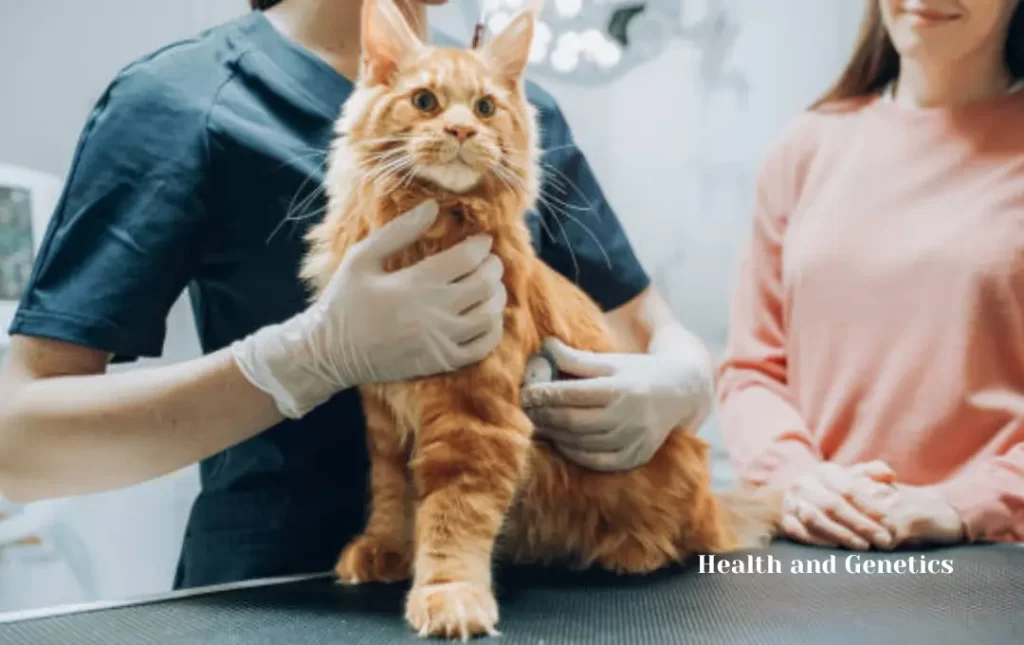
Maine Coon Kittens: Age and Coloration
When considering a Maine Coon kitten, two factors that can influence their price and appeal are their age and coloration. Maine Coon kittens vary in age and coat colors, and these characteristics can significantly impact your choice and the price you are willing to pay. Let’s explore the importance of age and coloration when selecting a Maine Coon kitten:
Age:
Kitten Age Range: Maine Coon kittens are typically available for adoption when they are between 12 and 16 weeks old. Kittens at this age have undergone essential early socialization and have received their initial vaccinations.
Influence on Price: Younger kittens (around 12 weeks) are often more expensive than older ones because they require more care, nutrition, and socialization. Breeders invest additional resources in caring for these younger kittens, which can reflect in the price.
Socialization: Kittens of all ages require socialization, but younger kittens may be more adaptable and easier to integrate into a new home. Older kittens, while equally lovable, may need a bit more time to adjust to their new surroundings.
Health: Kittens should be in excellent health regardless of their age. Make sure to obtain their health records, including vaccination and deworming history, to ensure they are up-to-date with their care.
Coloration:
Variety of Colors: Maine Coon cats come in a wide range of coat colors and patterns. Common colorations include brown tabby, silver tabby, white, black, and cream, but you can find Maine Coons in many other shades.
Rarity and Preferences: The rarity and desirability of specific coat colors can affect the price. For instance, unique and less common colors like solid white or unusual patterns like tortoiseshell may command higher prices.
Personal Preference: When choosing a Maine Coon kitten based on coloration, it’s important to consider your personal preferences. Your cat will be a part of your family for many years, so it’s important to choose a coloration that appeals to you.
Show-Quality Coat: Some colorations may be more suitable for show cats, and kittens with these coat colors might come from breeding lines known for their excellence in cat shows.
Maine Coon Kitten Care
Maine Coon kittens are known for their playful and affectionate nature, and they make wonderful companions. Proper care is essential to ensure they grow up healthy and happy. Here is a guide to Maine Coon kitten care:
Nutrition:
Kitten-Specific Food: Feed your Maine Coon kitten a high-quality, commercially prepared kitten food. Kittens have specific nutritional needs for growth, and these foods are formulated to meet those requirements.
Feeding Schedule: Follow the feeding recommendations on the food packaging and consult with your veterinarian for guidance. Young kittens typically need to be fed several times a day.
Fresh Water: Ensure your kitten has access to clean, fresh water at all times.
Health and Veterinary Care:
Vaccinations: Follow a vaccination schedule as recommended by your veterinarian to protect your kitten from common feline diseases.
Regular Check-ups: Schedule regular check-ups with your vet to monitor your kitten’s health and development. Early detection of health issues is crucial.
Parasite Control: Keep your kitten up to date on deworming and flea control. Discuss options with your veterinarian.
Spaying/Neutering: Most Maine Coon kittens are spayed or neutered before being sold. If not, discuss this with your vet and schedule the procedure as recommended.
Microchipping: Consider microchipping your kitten for identification and tracking purposes.
Grooming:
Regular Brushing: Maine Coons have long, dense fur that requires regular grooming. Brush your kitten’s coat to prevent mats and tangles. This can be a bonding experience for both of you.
Baths: Occasional baths may be necessary, especially if your kitten gets into something messy. Use a cat-specific shampoo and be gentle.
Socialization:
Play and Interaction: Maine Coon kittens are playful and enjoy interactive playtime. Spend quality time with your kitten to build a strong bond and keep them mentally and physically stimulated.
Socialization with Other Pets: If you have other pets, ensure they interact safely and get along. Proper introductions and supervision are essential.
Environmental Enrichment:
Scratching Posts: Maine Coon kittens love to scratch. Provide scratching posts or pads to satisfy this natural behavior.
Toys: Offer a variety of toys to keep your kitten entertained. Toys that mimic hunting behaviors, like feather wands, are often well-received.
Litter Box Training:
Litter Box: Provide a clean, easily accessible litter box. Maine Coon kittens are generally quick learners when it comes to using the litter box.
Litter Choice: Choose a litter that your kitten finds comfortable. Some Maine Coons prefer unscented or softer litters.
Safety:
Kitten-Proofing: Kitten-proof your home by removing potential hazards, like toxic plants, chemicals, and small objects that can be ingested.
Supervision: Supervise your kitten, especially during the early months, to prevent accidents and ensure their safety.
Exercise:
Playtime: Engage in active play sessions to help your Maine Coon kitten burn off energy. Interactive toys and climbing structures can be great additions to their environment.
Training:
Basic Commands: Teach basic commands like “sit” and “come” using positive reinforcement techniques.
Love and Affection:
Cuddle and Bond: Spend quality time cuddling and bonding with your Maine Coon kitten. They thrive on affection and interaction.
Maine Coon kittens are known for their friendly and sociable nature, making them wonderful additions to any home. With proper care, your Maine Coon kitten can grow into a healthy and happy adult cat, ready to bring joy and companionship to your life for many years to come.
Frequently Asked Questions
Conclusion
Maine Coon kittens are the embodiment of feline majesty, known for their captivating appearance, playful nature, and affectionate demeanor. If you’re considering adopting one of these remarkable kittens, you’re embarking on a journey filled with joy, companionship, and the unique charm that only Maine Coon cats can offer.
The importance of breeder reputation, health, genetics, age, and colour, as well as other aspects of Maine Coon kitten adoption, have all been covered in this book, along with a number of other aspects of kitten adoption in general. We’ve covered crucial elements of caring for a Maine Coon kitten, like feeding, health, grooming, and socialisation, to assist you in providing a secure, loving, and rewarding environment for your new feline family member.

